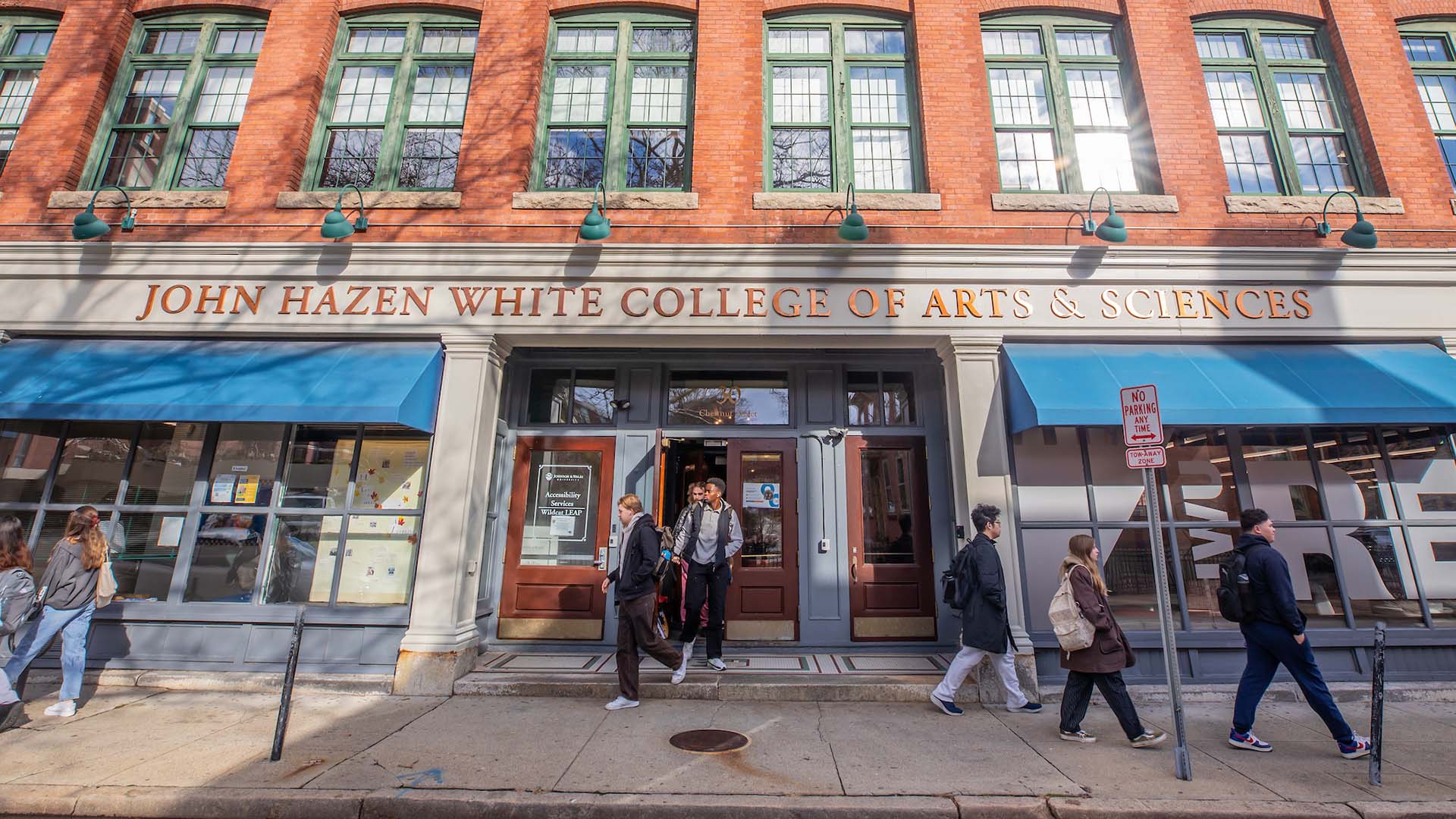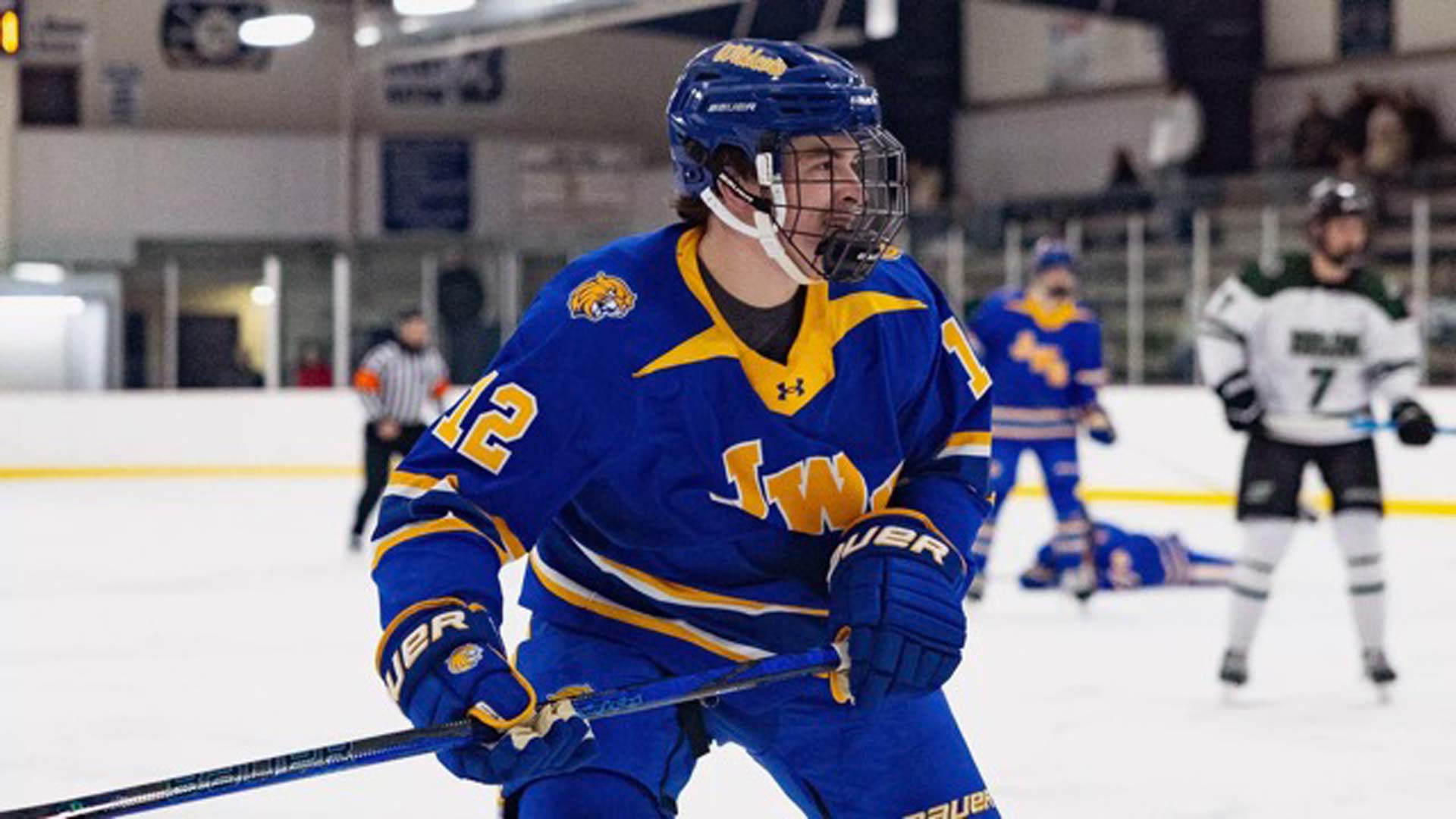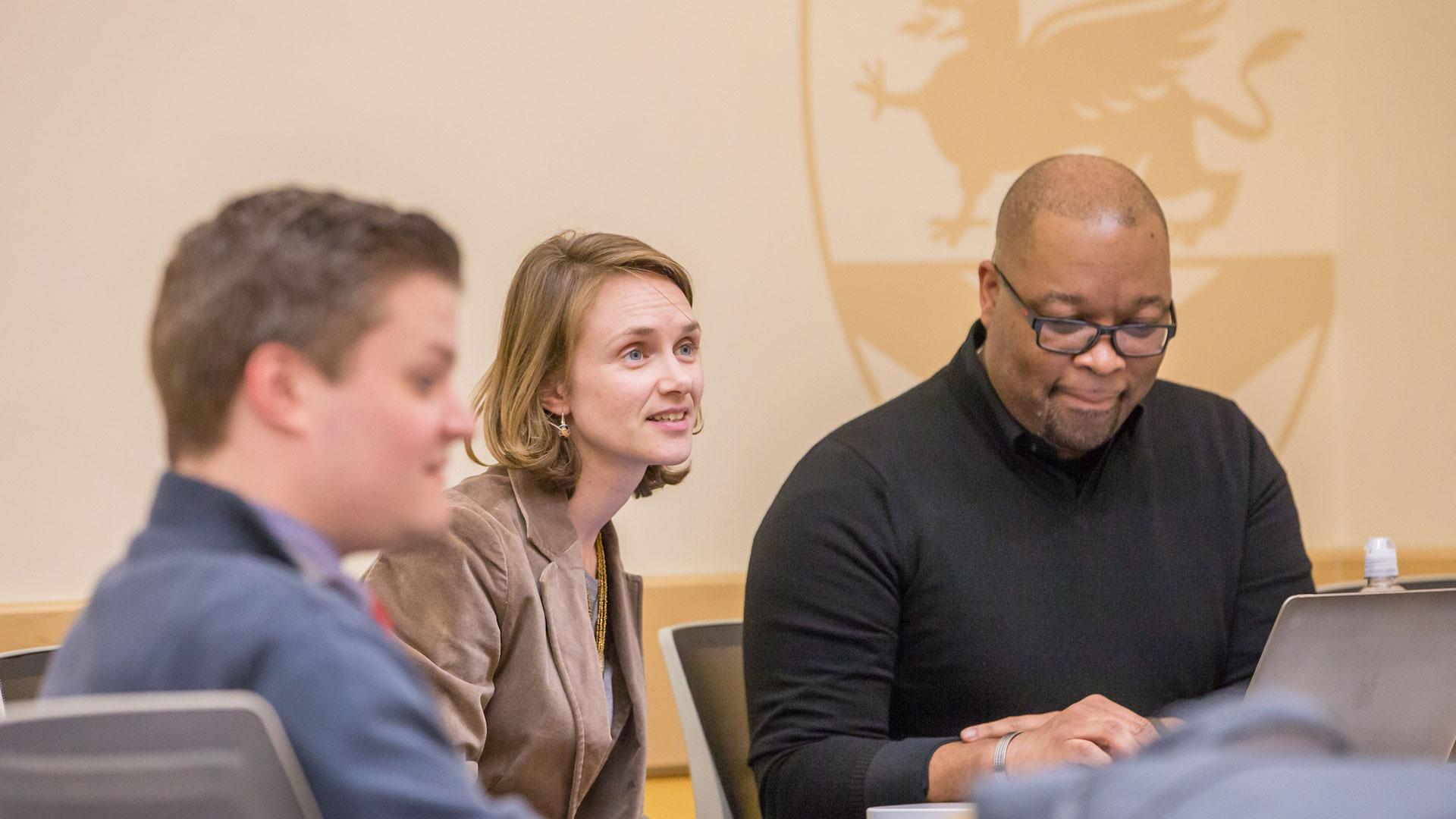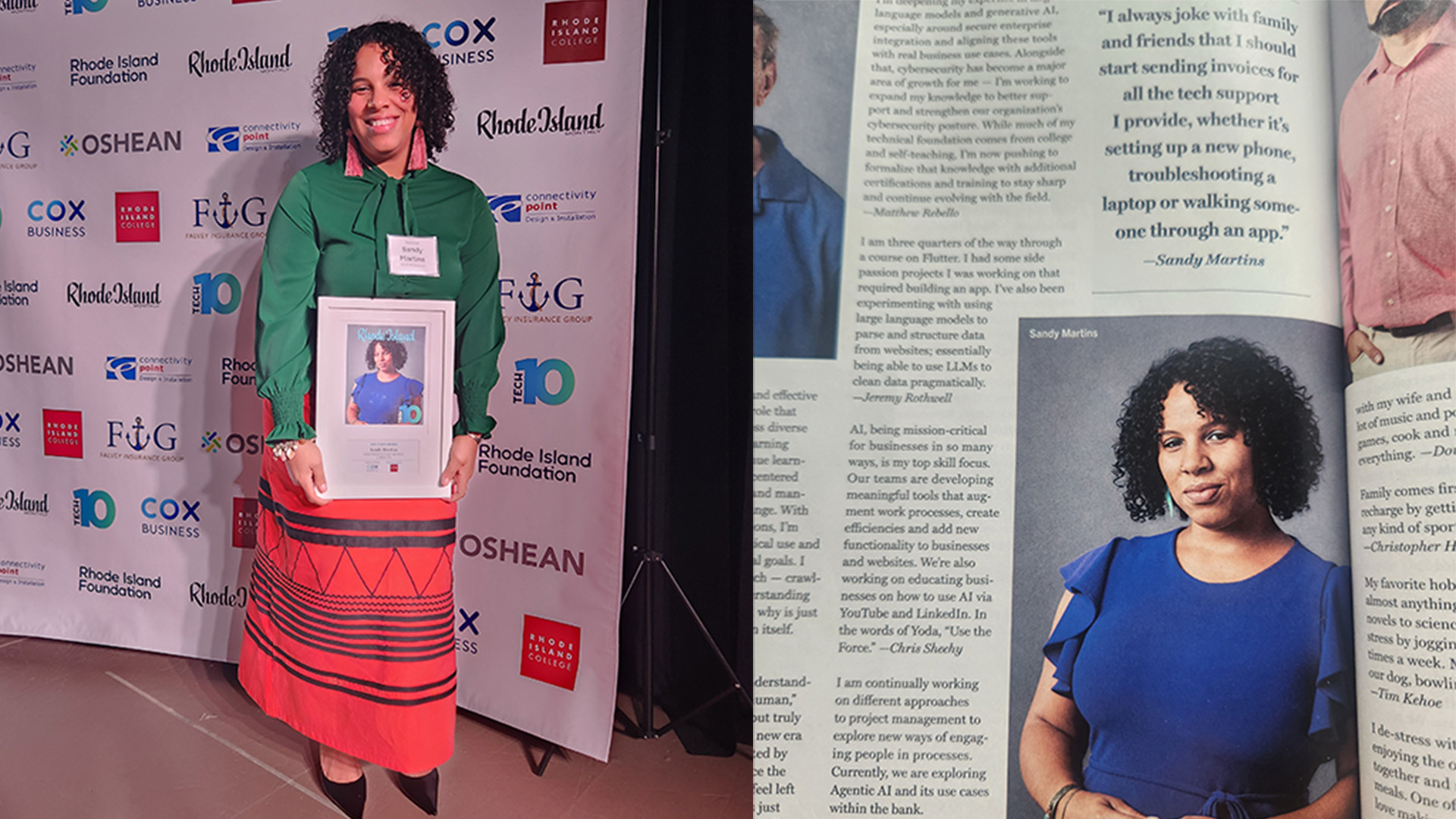Immersive Exhibits and Fashion Show Highlight Student Collaboration
Editor’s Note: As of Summer 2025, Johnson & Wales University integrated the College of Engineering & Design into the John Hazen White College of Arts & Sciences. This change reflects the university’s ongoing efforts to align programs with student interest and industry demand.
Johnson & Wales Center for Media Production (CMP) isn’t just for learning camera techniques.
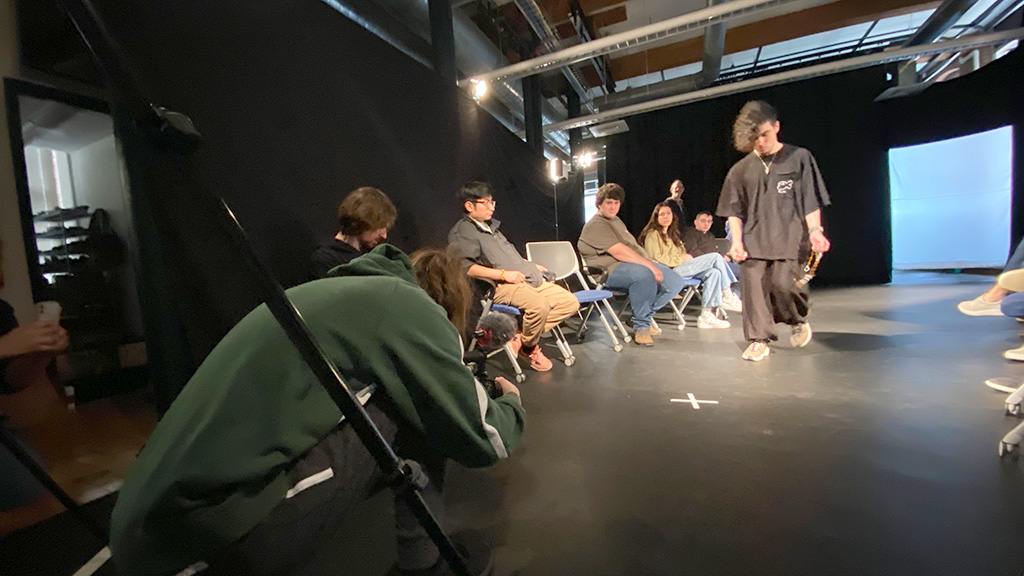
This spring, students in JWU’s Media & Communications Studies program paired up with Graphic Design and Product Design students for two different projects, merging the hands-on work of the College of Arts & Sciences with the College of Engineering and Design.
“For this project, they looked at nature as a starting point,” Assistant Professor Jonathan Harris explained.
Led by Harris and adjunct faculty member Azalea “Ozzy” Saba, Graphic Design students in their first year used wire to create objects inspired by nature and fit them on a body in an abstract form.
“Then the last part is a fashion show,” Harris said.
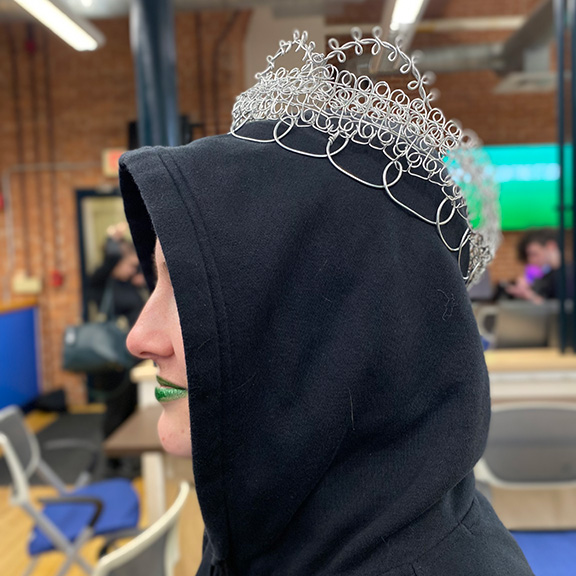 After years of attempting to record this project final on iPhones, with green screens, and more, Harris realized JWU’s own students, faculty and spaces could potentially provide what his recordings were lacking.
After years of attempting to record this project final on iPhones, with green screens, and more, Harris realized JWU’s own students, faculty and spaces could potentially provide what his recordings were lacking.
“When the opportunity came for the lighting class to help us out, it was a no-brainer,” Harris said.
The CMP was transformed into a catwalk. From the lights down to the music, camera angles and cutting, Professor and CMP Director Evan Villari and his students stepped in to showcase the handmade jewelry, headpieces, and other delicate creations.
“It was cool to see other students’ work rather than just filming with my own classmates in my own program,” Media & Communications Studies student Sydney Butera ’24 said.
Butera wasn’t the only student who found great value in this teamwork.
“The whole collaborative project stuff is one of the reasons I actually decided on this school, and I was so excited to finally do it,” Graphic Design student Abram Kempner ’26 shared.
The collaboration with Harris and Saba’s students fell around the same time Villari’s students also welcomed Associate Professor Karyn Jimenez-Elliot’s Wayfinding & Environmental Graphics class into the CMP. Her class was met with the challenge of designing an immersive exhibit for a busy travel hub that uses lighting and projection mapping, which projects moving images onto the ground, walls, or other surfaces.
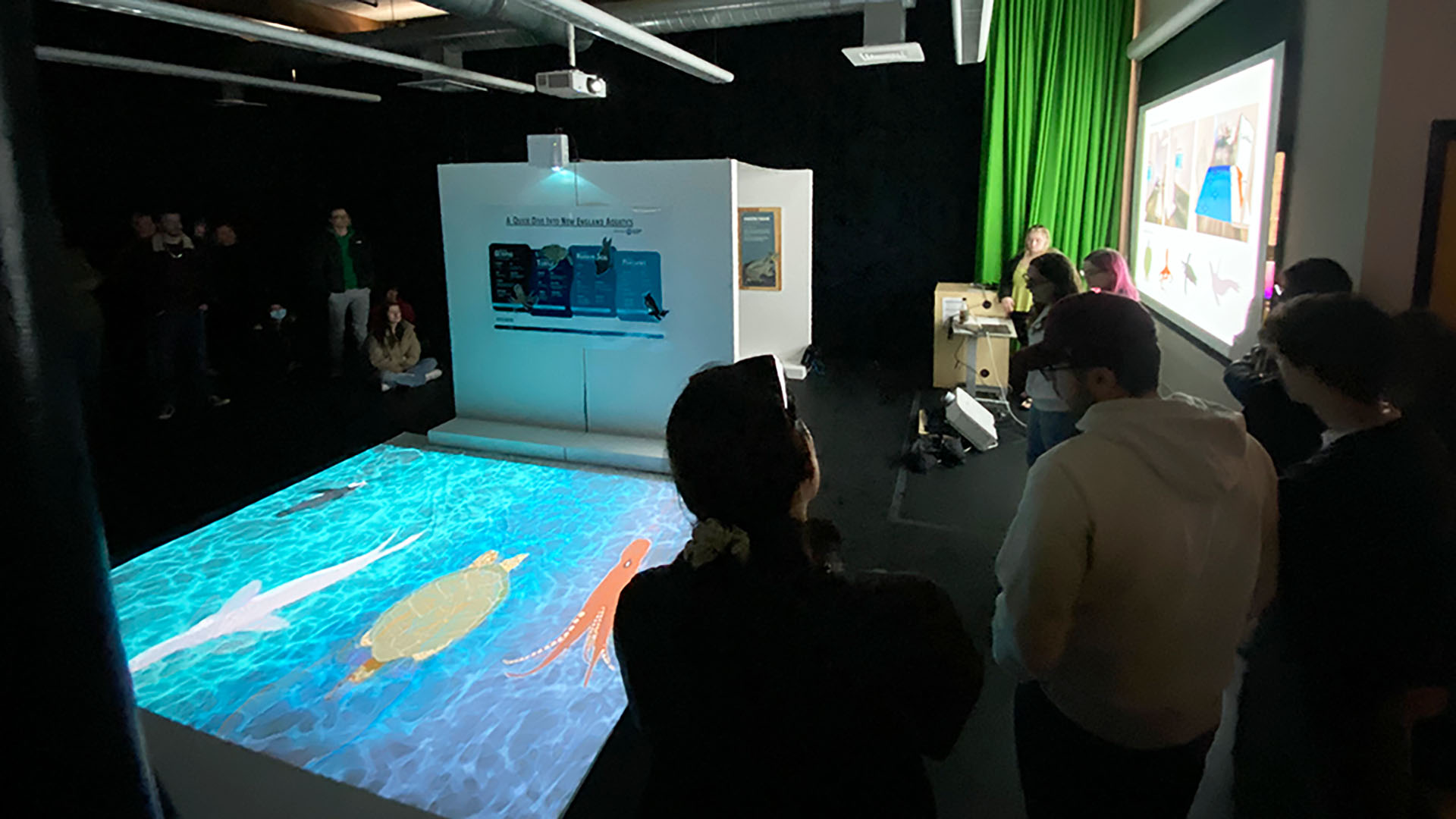
“Given that it took us 6-8 hours of staging prior to both presentation days, we needed a space that wouldn't be interrupted and we had to create a space where we could block out light,” Jimenez-Elliot explained.
The result? A mental reprieve from the rush associated with travel. The designs students visualized for Logan Airport, the Providence Train Station, T.F. Green and other hubs were beautifully displayed in the CMP for final presentations, which Jimenez-Elliot says was imperative in making this project successful.
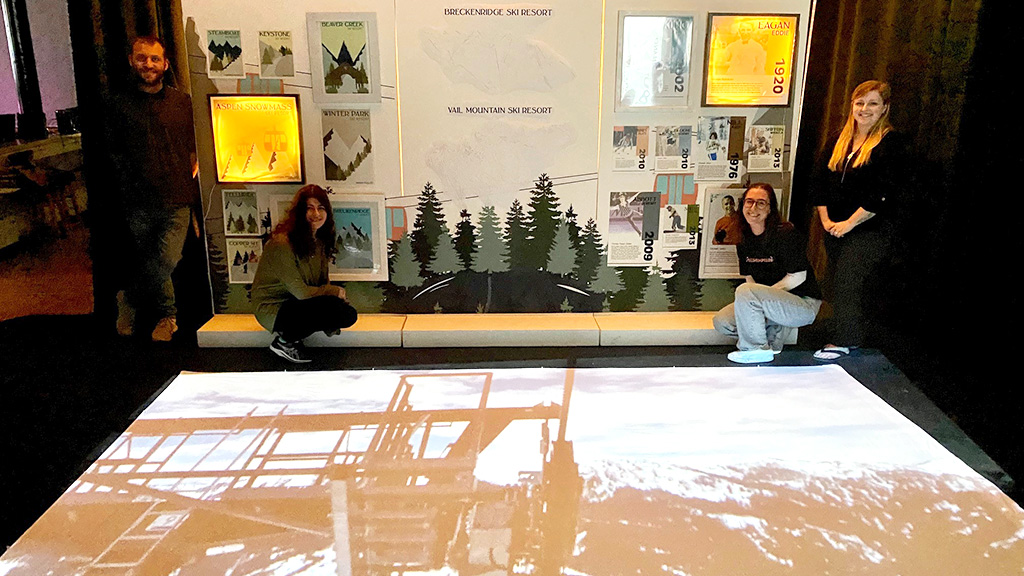
“Cross-collaborations like this one are so beneficial to students because they’re not just creating a digital rendering of a design – they’re able to build life-size physical prototypes within this space,” she said.
Villari agrees that translating lessons into these real-life scenarios helps students connect the dots and makes for a rewarding learning experience. He says these partnerships are far from over.
“Just wait until you see what we have planned for Fall 2023,” Villari teased. “Collaboration City.”
